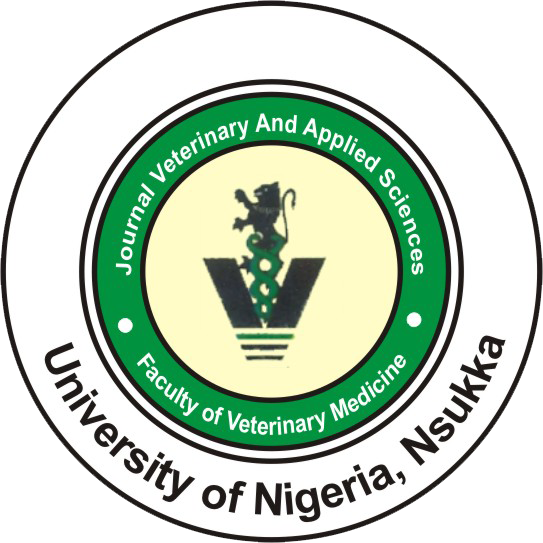University of Nigeria
ISSN: 2315 - 6856
e-ISSN: 2636 - 5553
Journal volumes
Powered by: RockSystems Global Services Ltd.
rocksystemsglobal@gmail.com (+2348035271306)
www.rocksystemsglobal.com

Policy and Ethics
Research Ethics
In experiments involving live animal species, authors must provide detailed description of any anaesthetic and surgical procedures used and enough evidence that adequate steps were taken to ensure that the animals did not suffer unnecessarily in any stage during the experiment. It is therefore the responsibility of authors to ensure that ethical guidelines are followed in animal and human studies. Authors are advised to consult full online details on ethical guidelines in studies involving human and non-human subjects such as Animal Welfare Act
( http://www.aphis.usda.gov/aphis/ourfocus/animalwelfare/sa_awa/ct_awa_program_information), The Animals (Scientific Procedures) Act (Amendment) Order 1993 (http://www.legislation.gov.uk/uksi/1993/2103/made), The EU parliament directive on the protection of animals used for scientific purposes (http://eur-lex.europa.eu/LexUriServ/LexUriServ.do?uri=OJ:L:2010:276:0033:0079:EN:PDF) and ARRP policies and guidelines (http://www.animalethics.org.au/policies-and-guidelines).
WIPO (http://www.wipo.int/tk/en/consultations/draft_provisions/draft_provisions.html), WHO (http://www.who.int/medicines/library/trm/researchdocs.shtml), NIH (https://www.nih.gov/health-information/nih.../guiding-principles-ethical-research) and CARE (www.apa.org/science/leadership/care/guidelines.aspx) etc. These should be stated as a part of the protocol describing how the study was conducted. Manuscripts that violate these principles shall not be considered for publication in JVAS.
Publication Ethics
Declaration of Conflict of Interest
It is mandatory that authors disclose any actual or potential conflict of interest, including financial, personal or other relationships with other people or organizations that could inappropriately influence, or be perceived to influence their work. Conflict of Interest disclosure is required for all manuscripts and will be published. It is the responsibility of the corresponding author to ensure that all co-authors adhere to this policy.
Plagiarism and Withdrawal Policy
Submitted manuscripts should be the original works of the author(s). Authors must obtain written permission from the copyright owner(s) and/or make adequate reference to sources of any Tables, Figures, Illustrations, Photographs, Graphics and Texts reproduced in their manuscript. Manuscripts that are found to contain unacceptable levels of plagiarised work shall be rejected.
Manuscripts are accepted for publication in the JVAS on the condition that they have not been published or under consideration for publication in another journal.
Authors are not permitted to withdraw any manuscripts already accepted for publication in the journal. In the rare situations where such withdrawals are permitted, other than for fraudulent reasons, the authors must pay all applicable fees for the submission and processing and submit to the Editorial Office a document signed by all authors regarding the withdrawal.
Duplicate manuscripts
It is unethical for authors to submit a manuscript to the Journal of Veterinary and Applied Sciences and at the same time, submit the same manuscript to another journal. This includes the submission of manuscripts derived from the same data in such a manner that there are no substantial differences in the manuscripts.
Citations manipulation
It is unethical for authors to add references that are irrelevant to their manuscripts or engage in irrelevant self-citation to increase their citation.
Terms of use






